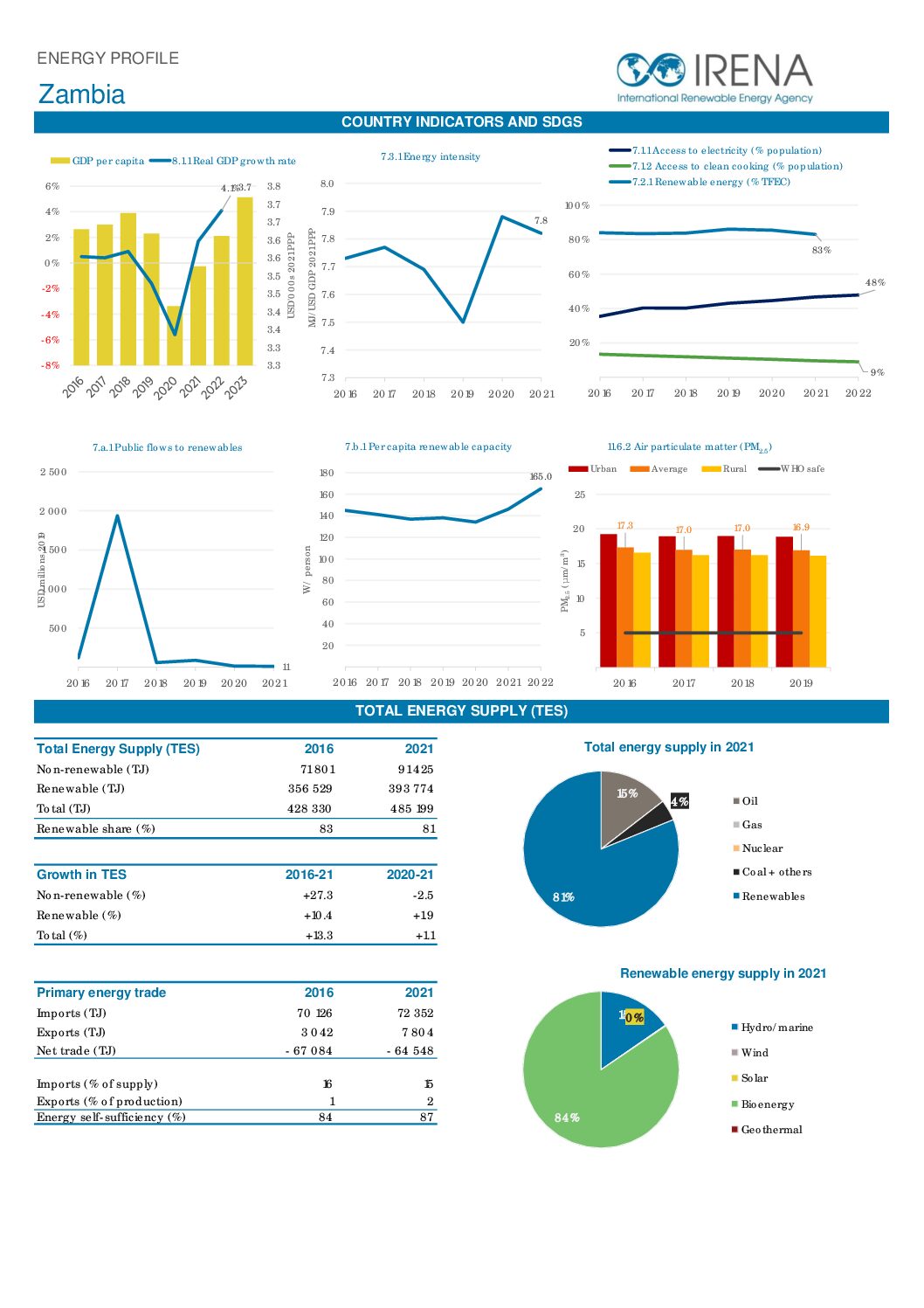This energy profile provides recent data on the energy sector of Zambia, including generation mix,total generation, renewable energy potential and more.
This web page provides an overview of the energy sector of Guatemala, including data on the energy mix, energy use and emissions; and a policy overview.
This web page provides an overview of the energy sector of Uganda, including data on the energy mix, energy use and emissions; and a policy overview.
This report assesses the progress of the energy transition in the Dominican Republic and identifies future pathways.
This guide aims to help energy statisticians understand the various elements and processes involved in renewable energy data collection and management, and identify capacity gaps. It covers seven requirements for effective data management: 1. Legal and institutional frameworks; 2. Well-defined data requirements; 3. Sufficient skilled personnel; 4. Clear methodologies and processes; 5. Appropriate data collection […]
This guide addresses the challenges faced by rural energy enterprises in developing countries, and sets out solutions such as business models offering cooking energy as a service.
The is comprehensive course is intended for energy statisticians working at national statistical offices and ministries in charge of energy.
This action plan, developed with support from SEforALL and ECREEE, lays out the energy access strategy of Côte d’Ivoire for 2016-2020/2030. It includes extensive background and context as well as information on strategic priorities and measures to promote these.
This paper underscores the need for sustainable utilities to deliver the energy transition in lower- and middle-income countries, and provides recommendations to governments and other stakeholders.
This report identifies and analyses key risks and barriers to private-sector investment in interconnected mini-grids in Nigeria, and evaluates policy and financial instruments designed to address them.







